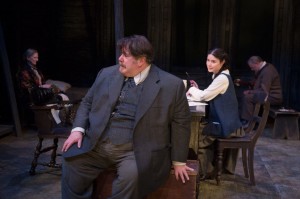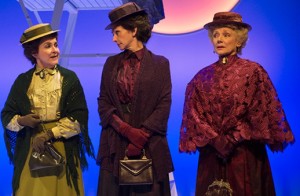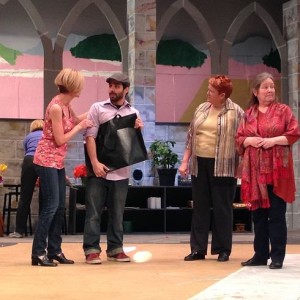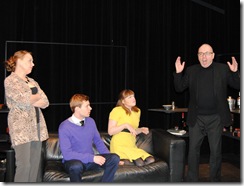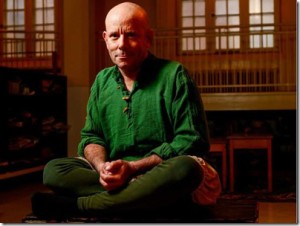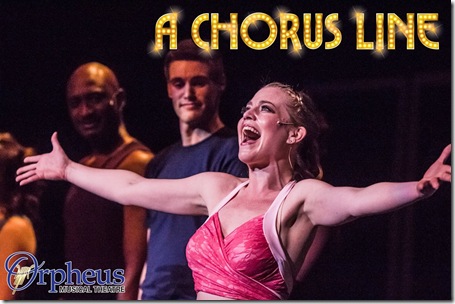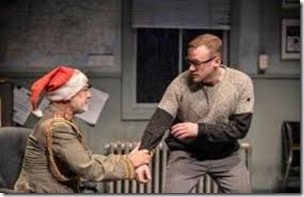The Shaw Festival Takes Alice Down A Dismal Rabbit Hole
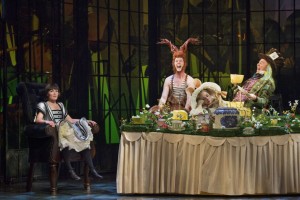
Alice in Wonderland
Adapted for the stage by PETER HINTON
Based on the book by LEWIS CARROLL
Directed by PETER HINTON
Musical direction by ALLEN COLE
NIAGARA-ON-THE-LAKE, Ont. — Briefly — very briefly — you’re thinking that the Shaw Festival’s expensive new version of Alice In Wonderland will be a thing of wonder and delight.
Director Peter Hinton and designers Eo Sharpe (sets) and Kevin Lamotte (lighting) begin by giving us startling visuals that transform the Festival Theatre stage into a miracle of shimmering, pastoral beauty. We’re entering the 19th Century world of Lewis Carroll and witnessing the genesis of a classic work of children’s literature. And the very fact that Carroll (in reality Oxford cleric and mathematician Charles Dodgson) is in a boat, gliding tranquilly through a watery landscape that isn’t really there, provides early assurance that we will, in fact, be entering a truly make-believe dimension.
A pity that it soon proves to be the wrong kind of make-believe. …

